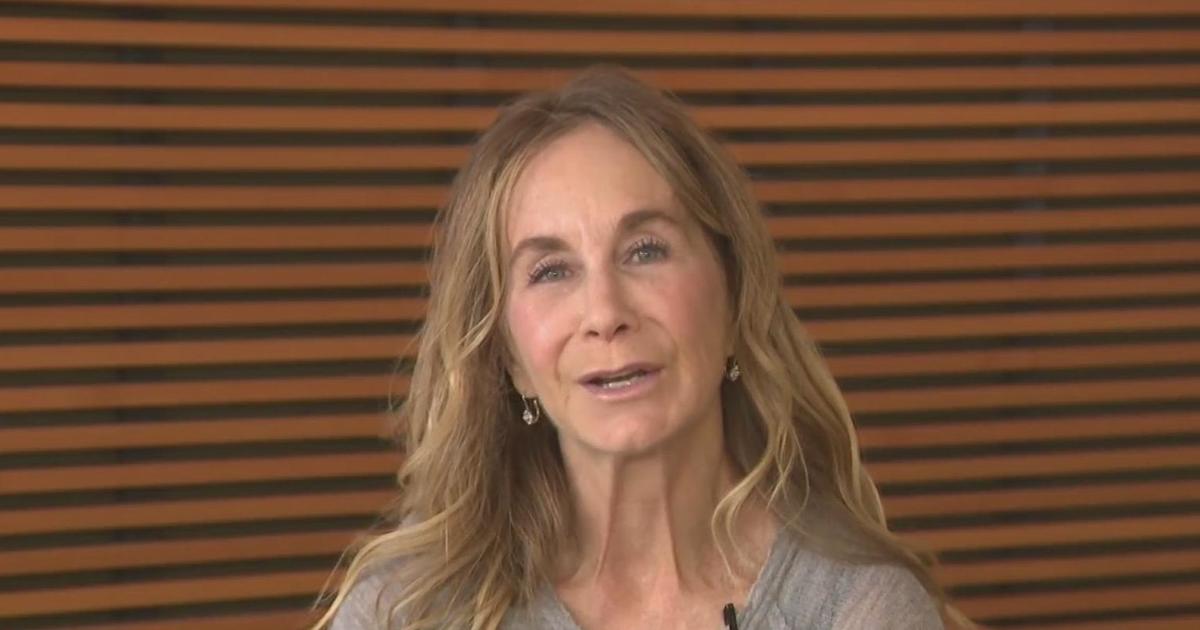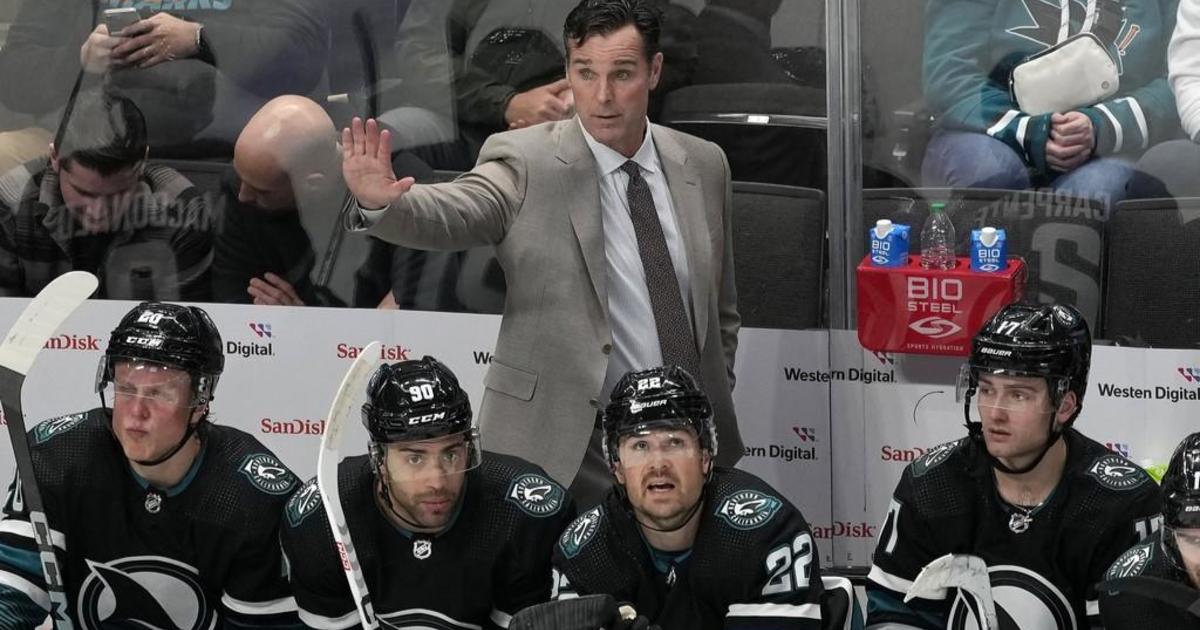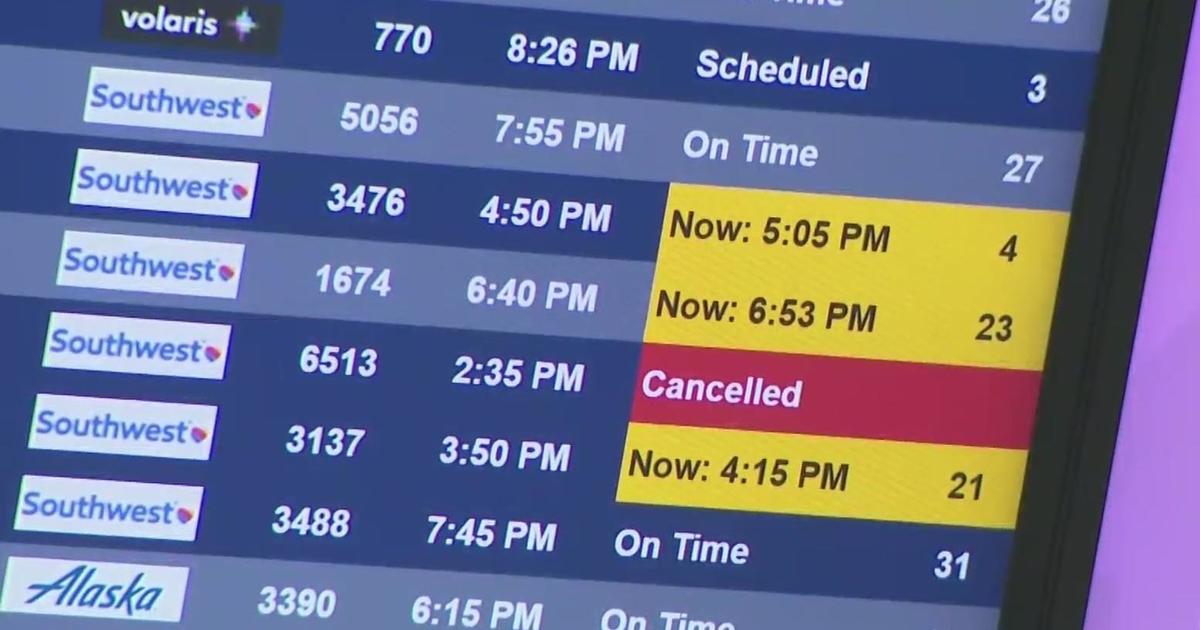SF Honors Student Helps Raise Siblings, Overcomes Abuse On Way To College
SAN FRANCISCO (CBS SF) -- When Maopeli Ali plays with his younger brother and sisters, you can tell instantly there's something special here going on here. It's the way he picks them up or jokes with them with a easy, natural intimacy.
"His job was to take care of his younger siblings, to change diapers, to make sure they had breakfast, that they were ready to go to school and just support his mom," explained his mentor, Alex Rivera.
LEARN MORE: Students Rising Above
He does it to help out his mom, who has to work hard to support five kids. Money is tight and never taken for granted.
Maopeli and his mother became a team after his father left. She has a new boyfriend now, but Maopeli still has big responsibilities at home and at school.
"I just knew I decided to take the role of the mature man of the family and me just getting good grades was the one thing that made my mom happy in life, so I decided to take that role," he said.
It's really much more than just making his mom happy. "He is paving the way for his siblings," said Rivera. "It means that somebody has broken the cycle and was able to move or to make a change."
Maopeli is an honors student at Riordan High School in San Francisco, where he attends on scholarship from a non-profit called Achieve. It sends promising students to private college prep schools.
It's a very different world than his life at home, where Maopeli has dealt not only with poverty but abuse.
His father was always strict, but later, it evolved into something more physical and damaging. There was the constant angry scowl that could at any moment explode with fury.
Maopeli could hear the screaming behind closed doors, but sometimes the violence was right in front of him. "He would abuse my mom. He would choke her," he remembered. "I was a little kid and seeing my dad as this towering figure that I did fear … when he did stuff to my mom, I couldn't do anything … The hardest part for me was knowing that I couldn't do anything."
His father would also abuse Maopeli, making him hold his arms straight out at his side for half an hour. "If I cried or put my arms down, he would extend it for 10 minutes, and each time I cried or put my arms down during that time, he would extend it for 10 minutes … It could go on for a while … I learned not to cry when this punishment happened and sometimes he would just hit me with the belt."
And so it went, until his mom made his father leave. But the pain and anger simmered, especially when he was forced to have visitations with his dad. Eventually, he was allowed to see a lawyer and end the visitations.
Then one day, he happened to see his father at a school event. That night, a new set of emotions washed over him. He began to think about suicide. "What's the quickest way to do it," he wondered.
"I was just done. I didn't want to deal with anything else at the time. It wasn't so much hopelessness … I was tired. I didn't want to deal with life … it was a scary feeling."
He thought about using a razorblade.
Before he got any further with his plan, his mom asked him to run an errand with her. In a quiet moment in the car, he confided in her. "I said, 'Mom have you ever thought about suicide?' And she was, like, 'No' and she said, 'Have you?' And I was, like, 'Yeah,'" Maopeli said. "She cried for a long time in the car. I cried for a long time in the car."
His mother told him she was relieved he could talk about it. In fact, this set off a change in Maopeli, who was taught by his father that men don't cry, they just deal with problems. He began to open up not just with his mother but with a counselor as well.
It took time, but eventually, "Therapy was a place where I learned to be open about the subject of my father," he said. "Where I could get relief for the pain and anger… Through therapy, I was able to accept that there wasn't a lot I could do as a kid and not to be angry with myself."
He would also learn it was not his fault that his father left. "I had to accept that he left and that it was a good thing."
What struck me in hearing Maopeli describe this was the level of emotional maturity this teenager had in dealing with this most difficult of situations involving his father. He is not a boy anymore, he's a man who's able to reason and talk through life's dilemmas.
His mentor called it his "freedom." "Imagine, it's this weight that has been lifted right? He no longer has to live in this fear and in this shame, and he can go out and do what he wants to do," said Rivera. "He's not a victim. He's absolutely not a victim."
Next year, Maopeli will take his family a step further when he goes to college.
"I can go after the dream that I want to go for, that maybe my family or people in my family didn't get the chance to do," he said. "It just means that I will be able to do something great with my life."
It appears that, in a significant way, Maopeli already has.



